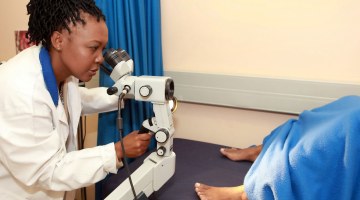Find out a little about Stephen McGill in his mini-bio, the latest in IRMA's
"Meet a Friendly Rectal Microbicide Advocate" series on the IRMA website here. Stephen is one of five new bios
posted in the past week.
Stephen McGill, with an extensive background in public health,
HIV/AIDS prevention, and human rights advocacy, first came into contact
with rectal microbicide advocacy when he joined the highly-active IRMA listserv through the help of ACT UP Philadelphia and Health GAP.
As an active member on the listserv, Stephen is able to engage with
experts, researchers, and activists on the potential of rectal
microbicide research in combating HIV/AIDS in sub-Saharan Africa,
notably his native Liberia.
Stephen is founder of Stop AIDS in Liberia (SAIL), one of three organizations that received small Global Lube Access Mobilisation (GLAM) grants to advocate for improved access to safe, condom- compatible lubricant So far, Stephen and SAIL have organized stakeholders meetings to promote condom compatible lubricants with other local organizations in Liberia, Sierra Leone, Guinea, Gambia, and Cote d'Ivoire. In Liberia, Stephen has met with many organizations and media outlets including the Ministry of Gender and Development and the Ministry of Justice.
Stephen would also like to tell IRMA's followers to keep up the great work promoting diversity in advocacy, policy, and research. We are all looking forward to hearing more about Stephen and SAIL's advocacy efforts to improve lube access.
Thanks Stephen!
-------------------
*Join IRMA's robust, highly-active. moderated, global listserv addressing rectal microbicide research and advocacy as well as other interesting new HIV prevention technologies by contacting us at rectalmicro@gmail.com. Joining our listserv automatically makes you a member of IRMA - a network of more than 1,100 advocates, scientists, policy makers and funders from all over the world.
*Please look for us on Facebook: www.facebook.com/InternationalRectalMicrobicideAdvocates, and you can follow us on Twitter: @rectalmicro.
*Also, please note that shared news items from other sources posted on this blog do not necessarily mean IRMA has taken any position on the article's content. -------------------
Stephen McGill
Monrovia, Liberia
Stephen is founder of Stop AIDS in Liberia (SAIL), one of three organizations that received small Global Lube Access Mobilisation (GLAM) grants to advocate for improved access to safe, condom- compatible lubricant So far, Stephen and SAIL have organized stakeholders meetings to promote condom compatible lubricants with other local organizations in Liberia, Sierra Leone, Guinea, Gambia, and Cote d'Ivoire. In Liberia, Stephen has met with many organizations and media outlets including the Ministry of Gender and Development and the Ministry of Justice.
Stephen would also like to tell IRMA's followers to keep up the great work promoting diversity in advocacy, policy, and research. We are all looking forward to hearing more about Stephen and SAIL's advocacy efforts to improve lube access.
Thanks Stephen!
*Please look for us on Facebook: www.facebook.com/InternationalRectalMicrobicideAdvocates, and you can follow us on Twitter: @rectalmicro.
*Also, please note that shared news items from other sources posted on this blog do not necessarily mean IRMA has taken any position on the article's content. -------------------












